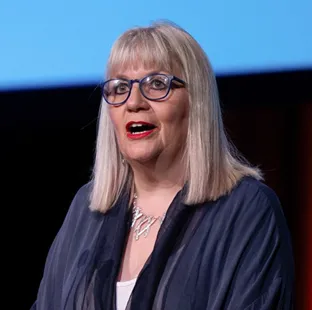Relationships are at the heart of learning for Babies and Toddlers says renowned early years expert, Dr Jools Page
Relationships and learning: Professional Love©
Dr Jools Page is an internationally recognised expert who is best known for her extensive research on attachment-based relationships between Early Years Professionals and children under three years in group day care provision which she has conceptualised as Professional Love©. Before taking up her academic role, Jools was employed in both policy and practice roles. For over three decades she worked closely with young children and their families where she gained a unique insight into the importance of fostering careful, respectful, reciprocal and genuine relationships between babies, toddlers and their key adults in professional early years contexts. You can read more about Professional Love and the meaning Jools attaches to her concept here
Relationships and Learning: Theory and Practice
Professional Love© is situated within a particular theoretical framework and research informed set of characteristics. Jools’ research recognised that although there is a great deal of evidence to support the fact that love is vital to children because there is a distinct lack of guidance it is 'complex' and 'fraught' with dilemma and challenge for those who work in early years settings. Reflective Practice or deep thinking cannot be done while you are concentrating on something else. However, Jools argues that it is this deep thinking by Early Years Educators which is key to developing close appropriate attachment relationships with babies and toddlers because it offers a means by which to apply theory to practice and makes the point that all practice involves the application of theory. Practice without theory is meaningless and will not stand up to scrutiny. It was Kurt Lewin who has been credited for saying there is ‘nothing so practical as a good theory’ - in other words he is saying a theory provides an explanation, a set of ideas about how something works, and the practical application of a good theory can be invaluable as it is only by reflecting on the practical application of the theory that we can really comment on its usefulness i.e. whether or not it works and importantly it provides us with the means to defend our practice when we are challenged. i.e. when meeting the needs of an infant’s bid for attention. It is important for early years practitioners to understand the reasons behind why they do what they do and knowing about theory gives them the tools to defend their ‘good’ practice as opposed to being made to feel that they are doing something wrong.
Relationships and Learning: Policy and Practice
Jools firmly believes that relationships are at the heart of all early years practice and that when Early Years Educators properly tune into the unique needs of babies and toddlers only then will they be able to authentically support children to learn. Early Years Educators are role models, and, in these roles, they are the embodiment of professionalism in practice, and it is to them that young children turn in times of distress but also to celebrate their flourishing and fulfilment whatever their socio-cultural context. No wonder then that professional work with young children is frequently referred to as a ‘labour of love’.
Historically, infants and toddlers have not been included within English Early Years policy frameworks. Traditionally, adults who worked in paid roles with children under the age of three were considered to be carers and those who worked with children aged three years and above were seen as educationalists (Page, 2013). This view not only demonstrates a complete lack of understanding of the complexity of caring relations, but it also undermines the role of those who spend their time professionally in the company of young children. Jools argues that Education does not happen in isolation, to educate is first to care.
Policy shifts have attempted to unite caring and education within the context of early years curriculum frameworks, though there is still some considerable way to go. For example, the EYFS (DfE, 2024) guidance materials from the Department for Education (2021) draw attention to the important role of the key person, pointing out that children do best when they are ‘loved and well cared for’ (DfE, 2021, p.9). It also says, ‘when settling a baby or toddler into nursery, the top priority is for the key person to develop a strong and loving relationship with the young child’ (DfE, 2021. p.44). Yet this guidance does not go far enough in helping Early Years Educators in the role of the key person to know how to develop loving relationships with young children and their families. The EYFS coalition guidance (EE, 2021) explicitly states ‘Professional Love is a concept explored by Dr Jools Page to describe the feelings of love, intimacy and care which practitioners experience in their reciprocal relationships with children’ (EE, p.131). It goes on to make clear the benefits to children of forming close attachment relationships with their key person, yet it also acknowledges the demands that this work places on Early Years Educators when it says: ‘The role of the key person involves building a relationship of “professional love”, with specific and potentially heavy demands. Importantly it makes clear that ‘Ideally a key person … is willing to research and reflect on the concept of “professional love”, so that they can see its relevance to their work as a key person’ (EE, p. 31) therefore it does go some way to challenging Early Years Educators to reflect on their thoughts, feelings and actions in their early years settings.
Relationships and Learning: Self-Reflection as a conduit for putting research, theory and policy into practice
By utilising the skills of Self-Reflection, it can lead professionals to be able to accept opportunities, to avoid stagnation and to strive for excellence, and provides an opportunity for innovative practice. Self-Reflection also provides an opportunity for professionals to be less judgemental – to avoid making assumptions about others and for constructing professional knowledge through critical dialogue which is at the heart of a pedagogy of Professional Love©.

